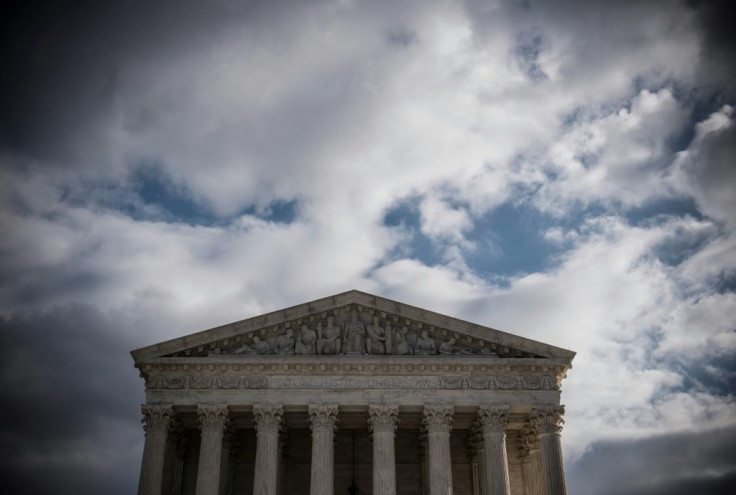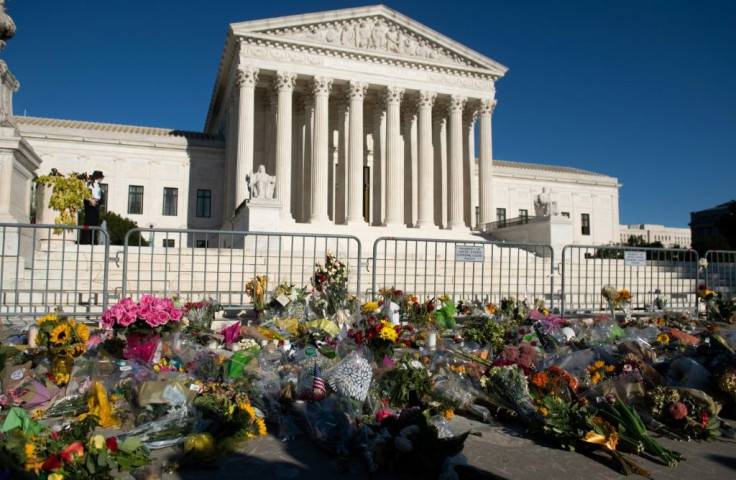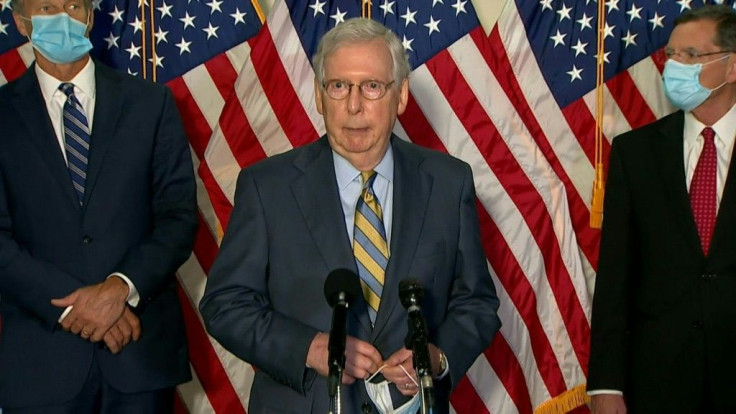Ginsburg To Lie In Repose As US Republicans Eye Quick Replacement
Justice Ruth Bader Ginsburg, whose death has opened a crucial Supreme Court seat that Republican President Donald Trump has promised to quickly and controversially fill against the wishes of Democrats, will lie in repose beginning Wednesday at the US high court.
Trump will announce his pick to replace Ginsburg Saturday, with Senate Republicans promising a swift vote on the nominee.

Democratic opponents, led by presidential candidate Joe Biden, however, are demanding that the process wait until after the November 3 election, when it will be known whether Trump is getting a second term.
Republicans are ignoring this, giving Trump, who has already replaced two other justices, a chance to tilt the nation's highest court to the right for decades to come, whether he beats Biden or not.

Speaking Tuesday at a campaign rally in Moon Township, Pennsylvania, Trump said he would reveal his nominee at 5:00 pm (2100 GMT) on Saturday at the White House.
"We're going to pick a great woman," he said to chants of "Fill that seat!" from the crowd. "We have great support from the Republican Party."
Trump indicated he would hold off on announcing his choice until the end of the week out of respect for the memorial services for Ginsburg. The progressive justice will lie in repose at the Supreme Court on Wednesday and Thursday then on Friday will become the first woman to lie in state at the US Capitol.

Trump has pledged to choose a woman to replace Ginsburg -- who died last week -- for the lifetime post.
Leaders of the Republican majority in the Senate, which is tasked with confirming court nominees, said they had enough support to hold a vote on the nomination either before the election or at worst during the "lame-duck" session between the election and the inauguration of the next president in January.

"We will certainly do that this year," Republican Senate leader Mitch McConnell said.
Although two Republican senators said they believed the upper chamber of Congress should not vote at all before the election, the party's 53-47 majority is still just big enough to go ahead.

One of the other key potential Republican holdouts, frequent Trump critic Mitt Romney, said Tuesday he would move ahead with the process.
"If the nominee reaches the Senate floor, I intend to vote based upon their qualifications," Romney said.
Trump welcomed what he called a "very positive statement" by Romney, who was the only Republican senator to vote for impeaching the president.

"Thank you Mitt," he said.
Democrats argue that any Senate vote should be delayed until after the election has made clear who will lead the country from 2021.
They cite the example of 2016 when Democratic president Barack Obama's nominee to replace justice Antonin Scalia months before the election did not even get a hearing in the Republican-controlled Senate.
"Why should the American people trust the Republican senators to do anything they say when they are proving right now that their speeches mean nothing the moment the shoe is on the other foot," the Democratic leader in the Senate, Chuck Schumer, said.
Republicans say that with their control of the White House and the Senate right now, they have the right to fill court seats at any time they wish.
Adding to tensions, there is fear that leaving Ginsburg's seat unfilled -- reducing the court to eight justices -- raises the possibility of a 4-4 tie in the event of rulings related to election disputes.
Trump's Saturday announcement will set the clock ticking on what is likely to be a contentious fight in Congress as Republicans push to get the nominee confirmed at an unusually quick pace.
White House spokeswoman Kayleigh McEnany told reporters "we certainly believe we can" get the entire approval process done ahead of the election.
Although Democrats have no way of stopping the procedure, they will seek to inflict political pain on the Republicans over what Biden called an "abuse of power."
As the battle lines were drawn over the court, Cindy McCain, the widow of the late senator John McCain, a Republican but frequent Trump opponent, threw her support behind Biden.
"My husband John lived by a code: country first," she said in a statement. "We are Republicans, yes, but Americans foremost.






